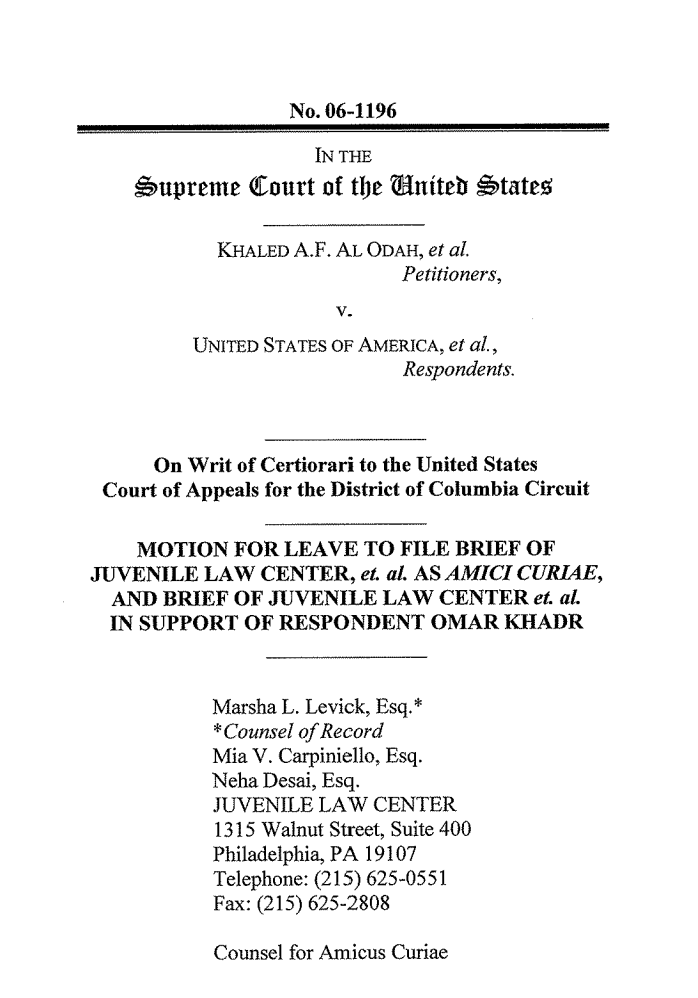
Summary of Argument
Amici support Respondent O.K.'s argument that military commissions convened pursuant to the Military Commissions Act (MCA) lack jurisdiction over O.K. The MCA is silent as to the issue of personal jurisdiction over minors and the military commissions do not provide for a distinct process for juveniles. It would be absurd to impute personal jurisdiction into a silence statute particularly given that federal law consistently accounts for the developmental differences between adults and youth.
It is widely understood that adolescents are categorically different than adults. Both United States Supreme Court jurisprudence and federal legislation reflect this understanding. Moreover, this federal law is complemented by an emerging body of social science research attesting to the developmental differences between adolescents and adults. This scholarships shows that adolescents are more likely to engage in risky behavior; are more likely to consider only the immediate effects of their acts rather than the long-term consequences; and are far more susceptible to being overcome by external pressure from peers and authority figures than are adults, both in terms of how they evaluate their own behavior and in conforming their conduct. The scholarship also shows that because they live in the moment, adolescents feel that they have less of a stake in the future. All told, this recent research illustrates that juveniles as a class are less capable of controlling their impulses than adults, and thus are less culpable than adults.